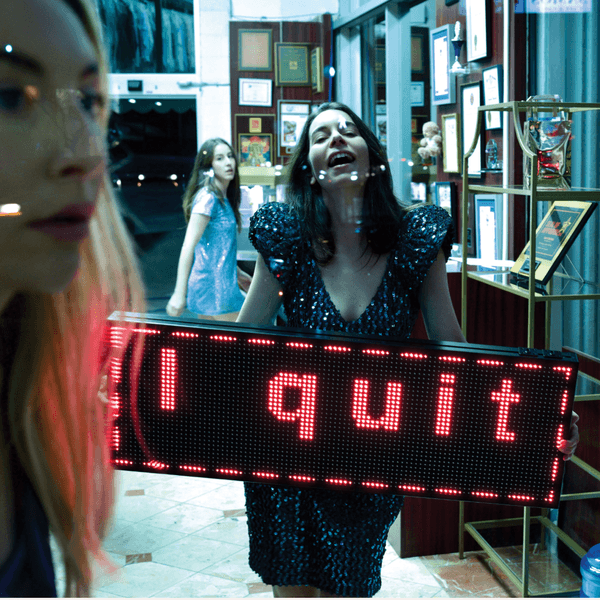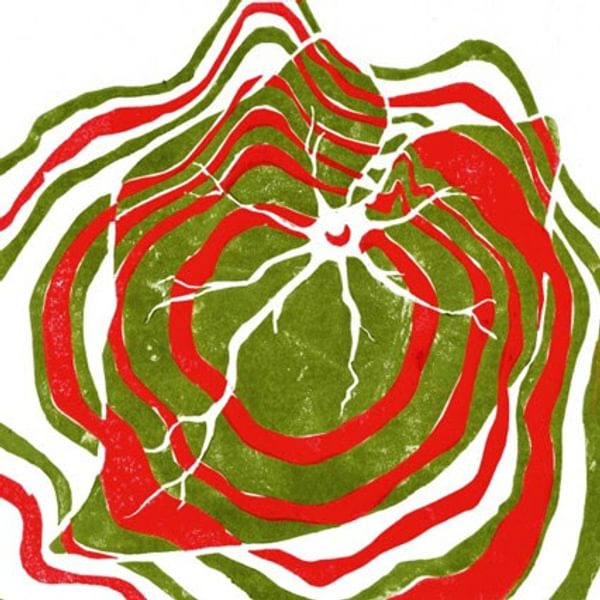
TLOBF Interview // Dan Mangan
The latest long player from Dan Mangan made the esteemed Polaris Music Prize shortlist. It’s also a lock on my own personal playlists. Simply put, Nice, Nice, Very Nice is Very Good. The honest emotional appeals found on its 12 songs run the spectrum of the human experience and Mangan’s exceptional melodic constructs beautifully highlight some of the most fantastic lyrical turns I’ve heard in quite some time.
After years of playing to a dedicated fan base in bars across Canada, the British Columbia native is finally breaking out to the masses. Mangan says he questions his artistic integrity in the face of the newfound success, a sign of the authentic artist making the music in the first place.
I want to start with the Polaris Music Prize nomination. How much did being placed on that shortlist affect what you’re doing?
Finding ourselves on that shortlist certainly was nice. I mean, the press is inevitably going to talk about whoever ends up on those lists. That’s the whole sphere. So it was a real surprise that I was put on the shortlist. I did not see that coming. It was really thrilling to be on that and also with the timing of having the record come out in the States right after that. It was pretty cool. And it’s kind of been another feather in the cap and it’s really helped to get some media attention our way.
How much do you aim for something like that or at least hope it comes around?
Of course, I certainly knew of the award and had an incredible respect for it. I remember when we first made Nice, Nice, Very Nice thinking it would be cool if we ended up on the Polaris long list or something like that. I don’t know if it was necessarily something I was aiming for. I think at the heart of it, we were just trying to make something that sounded as interesting as possible. I think what we came up with is still a straightforward record, especially compared to the other records on that list — some of which are very sonically chaotic. Compared to those records, we have one of the more straight-ahead records on the list.
That’s definitely the world that I live in, the world that cares about the type of prize that the Polaris Award is. Up in Canada, we have three magazines that are our hip print magazines. I read those things. I read those journals. I read those online blogs. So finding myself among the people getting the attention in those blogs and newspapers was quite exciting. It’s been a fairly cool ride since the album first came out a year ago in Canada. Now that it’s just getting it’s release in the States, it’s been a really incredible year. It’s also been a life-changing year with the opportunities that have come to us.
At what point did you realize that Nice, Nice, Very Nice was going to be the album that set you in those places?
I don’t know. I mean, I remember finishing it and it didn’t come out for six months after that. But I remember finishing it and not being able to listen to it at all for two months. We spent so many hours toiling away on it that by the time I was done, I didn’t even want to hear it. Then we started getting the reviews back and all of the reviews were really, really great. Then I had to relearn how to listen to the disc.
Not that I even play it to myself, but just in general. When you’re engaged in promoting an album, you inevitably end up hearing parts of it on websites or wherever, so it’s been an interesting process. I guess I don’t even know if it is the album, you know? It’s done very well on a small scale. It’s been very well received among a very small niche audience. That is cool. That’s amazing. That’s all I’ve ever wanted. I think if I’d aimed for a smash hit at commercial radio, then it would have come out as a very bad album.
You just try to make the best album that you can. At the time, I don’t even remember thinking about radio. I don’t think we ever thought about whether it would be playable on college radio or commercial radio or whatever. I try not to focus on making things sound cool. Fortunately, the way things all played out, we ended up getting a lot of radio support. It was really unexpected. I think that’s a really good place to put my head in. I really expected nothing, so every small victory that came our way was a great thing to celebrate.
That small niche audience, is that what you want the most? That small dedicated audience?
Yeah, I do. I mean, I don’t want to limit the music. If someone wants to listen to the music, that’s great. But more than anything, I think it’s about playing for the crowd that really appreciates what you’re doing. I think in an ideal world, I’d be able to play to large audiences, but to have them be the audiences that listen to the bands that I like.
Unexpected is a great word, even for the listener as well. At least it was for me. The first time I heard ‘Road Regrets,’ I found myself having to go back and replay it to give it my full attention just because I didn’t expect it to be so arresting from the beginning. Was that an obvious first placement?
That song is really interesting. When I brought it into the studio, it was this quiet little folk ditty about being on the road.
Really?
Yeah, basically everything you hear on the track is one take. The vocals are one take. The only thing that is overdubbed is the organ. Pretty much everything else on that song is on the floor. Well, I overdubbed a couple of layers of acoustic guitar and dulcimer sound in the beginning. But we just pushed and worked on that song and punished it from all angles. It got progressively more and more raw and more fast. It was a really organic thing as well as far as how it all worked out.
In terms of sequencing, for a while I was really having trouble with ‘Road Regrets.’ I wasn’t sure what to really do with it. It was almost the thing where we knew we needed to lead out the album with it as the first track or we needed to not include it at all. I think sonically it stands out from the rest of the record. It sounds different than everything else, so it needs to either be this foray into the album to introduce people to it, or it needs to be a b-side to be released some other time.
So we ended up putting it on there, of course. What we found despite our trying to make it sound raw and unpolished, it ended up getting added to a whole bunch of playlists. I’d never had that experience before of suddenly being on the radio. It was absolutely brand new to me. I’d been toiling it out in bars playing to 30 or 40 people for a long time and slowly building this kind of small but very loyal fan base. So all of a sudden, you broadcast it to the masses. It’s almost this strange thing that you ask yourself, ‘How do I feel about this? Is this okay? Am I giving something up of myself? Am I different kind of artist by being on the radio?’
In the end, I think as long as you believe in the music that you’re making and you maintain your focus on keeping things honest on whatever level of exposure you end up getting, it won’t influence your decisions in the end when it comes to your creativity. There’s lots of bands that I love that are huge, massive, multi-platinum selling bands like Radiohead or Wilco or something. But you still feel that their creative intention still comes from a very unique and honest place. At the heart of it all, that’s where it should be.
Get the Best Fit take on the week in music direct to your inbox every Friday

Loyle Carner
hopefully !

Yaya Bey
do it afraid

Haim
I quit





